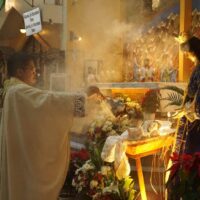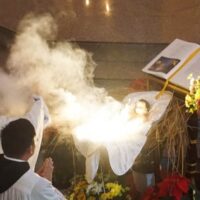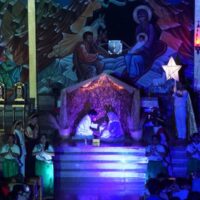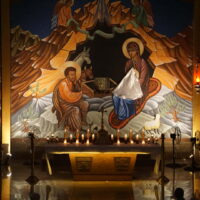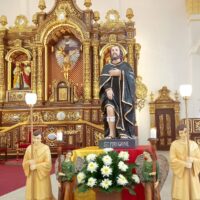Extraordinary Ministers distribute Holy Communion, either within the Holy Mass or by taking it to a sick person, when an ordained minister (bishop, priest or deacon) is absent or impeded.
According to the Redemptionis Sacramentum (a document produced by the Vatican Congregation on Divine Worship and the Discipline of the Sacrament), an extraordinary minister of Holy Communion is not to be called a “special minister of Holy Communion”, nor an “extraordinary Minister of the Eucharist”, nor a “special minister of the Eucharist”. Only the priest is the MINISTER OF THE EUCHARIST.
The Redemptionis Sacramentum also states that the extraordinary minister of Holy Communion may administer Communion only under the following circumstances: when the priest and deacon are lacking; when the priest is prevented by weakness or advanced age or some other genuine reason, or when the number of faithful coming to Communion is so great that the very celebration of Mass would be unduly prolonged. “…A brief prolongation, considering the circumstances and culture of the place, is not at all a sufficient reason.”
 Diocese of Parañaque
Diocese of Parañaque




